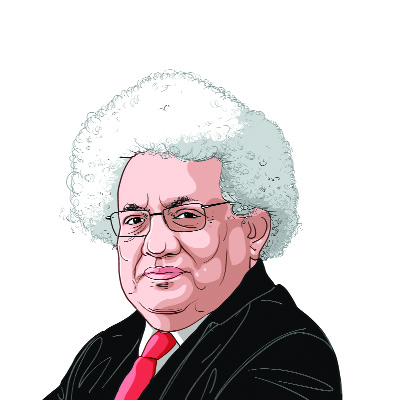Opinion Powerless in Power
Modern India was created in the teeth of British criticism.
Modern India was created in the teeth of British criticism that it was not a single country but a collection of regions and religions,languages and castes. The First Round Table Conferences decided that India was going to be a federation with a weak centre and powerful provinces.The drama we are witnessing now is a throwback to that vision. Starting with a Constitution which gave Indian Union a strong centre and subservient states,there was power at the centre,concentrated in the Congress majority governments led by a Prime Minister who ran the show. Fast forward to today and we have a two-tier government at the centre. The coalition,managed by Sonia Gandhi is the virtual cabinet where leaders of coalition parties do their deals. The cabinet is the lower level where representatives of the parties in the cabinet take their orders,not from the Prime Minister,but from their party leaders. What is more,the parties with a strong regional base are masters in their own backyard.
Tamil Nadu behaves for all practical purposes like an autonomous state. Sonia Gandhi,as leader of the coalition,has to negotiate the removal of A Raja with DMK chief M Karunanidhi as if its an international negotiation. The Prime Minister is neither here nor there. He runs the government,not the coalition.
The Congress hegemony was secure till 1989. After that,there has been a steady erosion of central power and coalition governments have been weak. When the NDA was in power,Atal Bihari Vajpayee could not even scold his Gujarat Chief Minister in the aftermath of the 2002 riots. The problem is that the Constitution was written with a large centrist bias since the founding fathers were worried about balkanisation. As it happens,the nation is not going to break up. But nor can it be run in the way Nehru and his daughter ran it. The moment passed when Indira Gandhi imposed Emergency. Nothing was the same after that despite the nine years (1980-1989) of Congress revival. From then on,Indian politics entered another era of weak governments at the centre.But India has not devised a new code of dealing with the weak Centre and a federation which can only survive by constant negotiations between the centre and the states. It was the genius of Sonia Gandhi to see this new situation when she split the top job between herself as leader of the coalition,handling the negotiations with the parties and the states,and the Prime Minister who runs the government. This innovation has lasted well for the last six years. Now it has hit the buffers because ethical conduct cannot be imposed on the powerful ally who does not believe in ethics. Thus,it was that the resignation of Raja had to be carefully negotiated and no doubt the DMK will extract its piece of flesh (or cash) when it gets another cabinet post.Yet,while the centre may be weak,the executive still has a lot of clout vis-à-vis the legislature. The Opposition is powerless to challenge the government in any constructive ways since governments always get their bills through. Hence,the daily hangama which stops Parliaments functioning,is the only weapon the Opposition can wield. This too is a new development since until the Emergency, parliamentary debates had a lot of influence on governments. Now,parliamentary sessions are shorter and manipulated to their own advantage by governments,with the Opposition fuming in impotent rageThe other constraint which should still check the executive is the judiciary. The Supreme Court has a moral power to embarrass the executive,but not much more. As we saw in the rotting foodgrain stocks case,the Supreme Court may pass strictures but if the offending member of the cabinet is the leader of one of the parties in the coalition,there is little the Prime Minister can do. Sharad Pawar takes orders from no one. The Prime Minister is unlikely to respect the court any more than his cabinet colleagues do.The question remains whether the nation will respect the Prime Minister as much as it did




